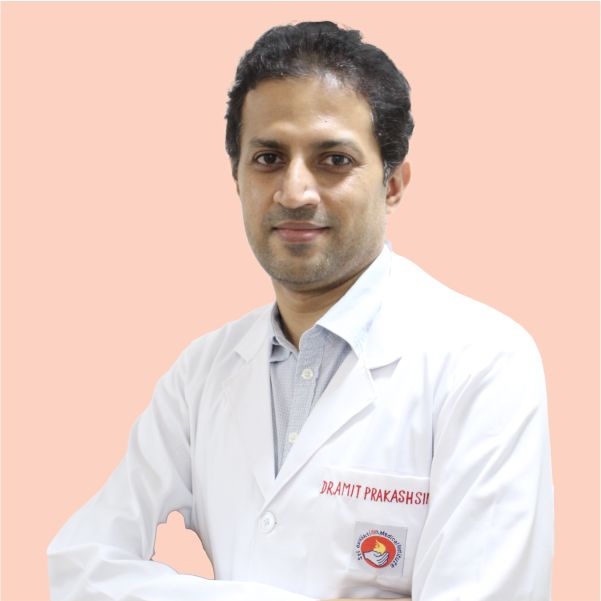Infectious diseases have been a persistent challenge throughout human history. These illnesses are caused by microorganisms such as bacteria, viruses, parasites, or fungi, and can spread from person to person, or through contact with contaminated surfaces, animals, or insects. Understanding the nature of infectious diseases, their prevention, and treatment is crucial in safeguarding public health and ensuring individual well-being.
Diseases Treated By The Department
The Infectious Diseases department in a healthcare facility specializes in diagnosing, treating, and managing a wide array of infections caused by bacteria, viruses, fungi, and parasites. Common conditions treated by this department include:
- Human Immunodeficiency Virus (HIV)/Acquired Immunodeficiency Syndrome (AIDS): Managing antiretroviral therapy and preventing or treating opportunistic infections.
- Tuberculosis (TB): Both active and latent tuberculosis infections, require long-term antibiotic therapy.
- Hepatitis B and C: Managing chronic viral hepatitis, including antiviral therapy.
- Sepsis and Septic Shock: A severe response to infection leading to systemic inflammation and organ dysfunction.
- Sexually Transmitted Infections (STIs): Including gonorrhoea, chlamydia, syphilis, and herpes.
- Respiratory Infections: Such as pneumonia, bronchitis, and influenza.
- Urinary Tract Infections (UTIs): Including recurrent or complicated UTIs.
- Skin and Soft Tissue Infections: Such as cellulitis, abscesses, and wound infections.
- Osteomyelitis: Infection of the bone, often requiring prolonged antibiotic therapy.
- Endocarditis: Infection of the heart valves, which can be life-threatening and may require long-term antibiotic treatment.
- Gastrointestinal Infections: Including those caused by pathogens like Clostridioides difficile, Salmonella, and E. coli.
- Zoonotic Infections: Infections transmitted from animals to humans, such as Lyme disease, rabies, and leptospirosis.
- Fungal Infections: Including invasive candidiasis and, aspergillosis.
Common Procedures
The Infectious Diseases department in healthcare facilities conducts various procedures and interventions to diagnose, manage, and treat infectious diseases. These key procedures are essential in accurately identifying pathogens, determining the severity of infections, and guiding effective treatment. Here are some of the common procedures performed by the Infectious Diseases department:
- Culture and Sensitivity Testing: This involves taking samples from various body sites (like blood, urine, sputum, or wound swabs) and growing (culturing) bacteria or fungi in a lab to identify the specific pathogen. Sensitivity testing is then performed to determine which antibiotics or antifungals are effective against the pathogen.
- Polymerase Chain Reaction (PCR) Testing: A rapid molecular test used to detect genetic material from a specific organism, such as viruses like HIV, Hepatitis C, or COVID-19. PCR tests are highly sensitive and can often provide faster results than culture tests.
- Serology Testing: This tests for the presence of antibodies or antigens in the blood, indicating a current or past infection. Serology tests are useful in diagnosing conditions like HIV, hepatitis, and certain types of fungal infections.
- Antibiotic Stewardship Programs: These programs involve monitoring and advising on the appropriate use of antibiotics to treat infections, preventing antibiotic resistance, and reducing the risk of complications like Clostridioides difficile infection.
- Lumbar Puncture (Spinal Tap): This is performed to collect cerebrospinal fluid for diagnosing infections of the central nervous system, such as meningitis or encephalitis.
- Imaging Studies: Techniques such as X-rays, CT scans, MRI, and ultrasound may be used to identify the presence and extent of infections, especially in cases of osteomyelitis, abscesses, or pneumonia.
- Biopsy: In some cases, a tissue biopsy may be necessary to diagnose certain types of infections, especially those involving internal organs, and bones, or when a chronic infection is suspected.
- Bronchoscopy: This procedure involves inserting a bronchoscope into the airways to collect samples for testing, often used in diagnosing respiratory infections like tuberculosis or pneumonia in complex cases.
- Infectious Disease Consultation and Management: Experts in infectious diseases provide consultations to other medical departments, offering insights on diagnosis, treatment options, and management of complex infections.
- Drug Monitoring: For certain infections treated with potent antimicrobials, regular monitoring of drug levels in the blood may be necessary to ensure efficacy and avoid toxicity.
- Vaccination and Immunization Counseling: Providing advice and administration of vaccines to prevent infections, especially in travellers, immunocompromised patients, or during outbreaks of infectious diseases.
- Infection Control and Prevention Strategies: Implementing protocols and policies within healthcare settings to prevent the spread of infections, including isolation precautions, hand hygiene practices, and sterilization techniques.
Advantages Of The Department
- Expertise in Diagnosing Complex Infections: Infectious disease specialists have extensive training in diagnosing a wide range of bacterial, viral, fungal, and parasitic infections, including those that are rare or have atypical presentations.
- Management of Multi-Drug Resistant Organisms: They are skilled in treating infections caused by antibiotic-resistant bacteria, which are increasingly common and challenging to treat.
- Infection Control and Prevention: The department plays a vital role in developing and implementing infection control protocols to prevent the spread of contagious diseases within healthcare settings and the community.
- Stewardship of Antimicrobial Use: They lead antimicrobial stewardship programs to ensure the appropriate use of antibiotics and other antimicrobials, reducing the risk of resistance development.
- Management of Complex Cases: Infectious disease specialists are adept at managing patients with complex medical histories, multiple infections, or infections with unusual presentations.
- Travel Medicine: Providing pre-travel consultations and vaccinations, as well as managing illnesses acquired during travel.
Call 011-42888888 to book an appointment with a specialist at Sri Balaji Action Medical Institute.
